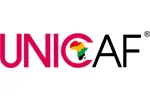

| The award | How you will study | Study duration | Course start | Domestic course fees | International course fees |
|---|---|---|---|---|---|
| BA | Online | - | - | - | - |
Introduction
The BA English Language and Literature is an innovative threefold degree programme which is comprised of English language teaching methodology, English literature and linguistics modules. The students will study the linguistic systems underlying language, exploring in detail how the language is structured, acquired, used and taught. In addition, the relationship between text, language, reader and author, society, economy, politics, culture and the individual will be explored.
Rationale
The courses of the linguistics component aim to provide students with a thorough grounding of the principles underpinning the study of language and the diversity of linguistic study. The teaching modules aim to provide students with knowledge and skills relevant to teaching English with an emphasis on classroom management and the use of technology. The courses in literature in English target the critical analysis of literary texts and film of different historical periods, geographical locations and genres.
Aim of the Programme
The aim of the programme is to provide students with a double major in the areas of English Literature and Linguistics, incorporating aspects of teaching methodology.
Objectives of the Programme
The degree objectives target students’ ability to:
1. demonstrate critical thinking skills as reader, writer and viewer to literature and film in English from different genres, geographical spaces and historical periods.
2. recognize, explain and apply current approaches in literary theory.
3. analyse and discuss a variety of literary texts and theories brought in dialogic interaction.
4. examine the relationship between text, reader, author and the sociocultural and politico-economic context.
5. recognize linguistic resources that may be exploited in written texts.
6. combine descriptive analysis with more critical and theoretical work, which develops students’ understanding of texts and/or language systems.
7. describe, explain and interpret linguistic systems underlying language acquisition and development.
8. identify and apply language in use patterns.
9. demonstrate high proficiency in English.
10. combine teaching methodologies in order to facilitate learning.
The general admission requirements for entry to Unicaf University Zambia Master degree programmes are as outlined below. Students are advised to contact the Office of Admissions to find out more about the range of equivalent international academic qualifications accepted.
In addition to a strong academic record, extra-curricular activities, leadership skills and other relevant background information are taken into account.
Below are some suggested courses at other providers that you may also be interested in:
Software Engineering for Embedded Systems MEng
Distance and Independent Studies Center, University of Kaiserslautern-Landau (RPTU), Germany
Find out moreStudy Abroad Summer Program Summer Course
Osgoode Professional Development, York University
Find out moreBiogeosciences: Analysis of Ecosystem and Science Communication MSc
Dipartimento di Scienze della Terra, University of Milan
Find out moreIf you do not meet the entry requirements for this course then consider one of these courses from another institution:
There are 69 other courses listed from Unicaf Scholarships. A selection of these are displayed below:
Bachelor of Business Administration - Unicaf University Zambia BBA
Unicaf Scholarships
Find out moreJoin the Сưłć´«Ă˝ email list and never miss a chance to turn your study abroad dreams into reality!
